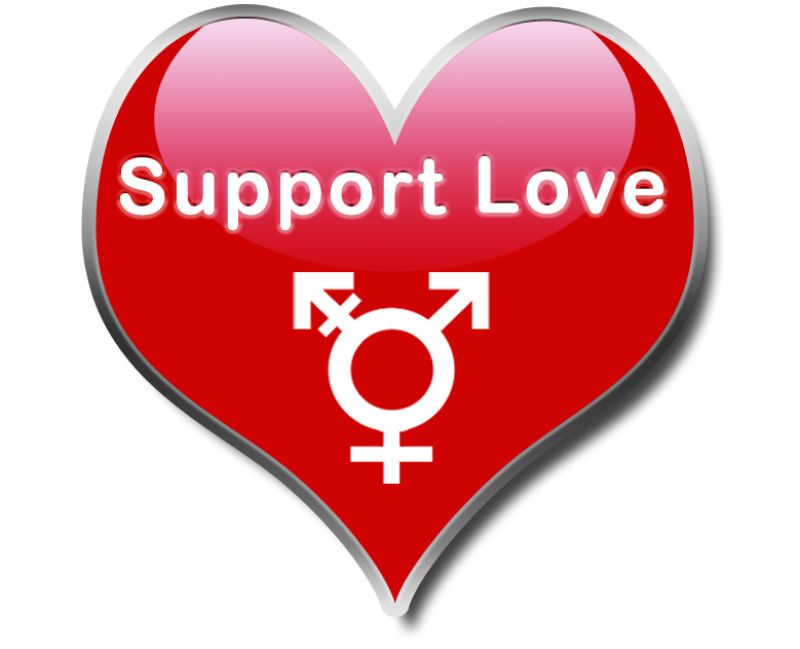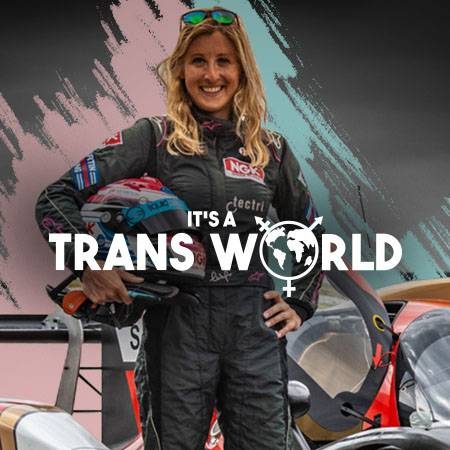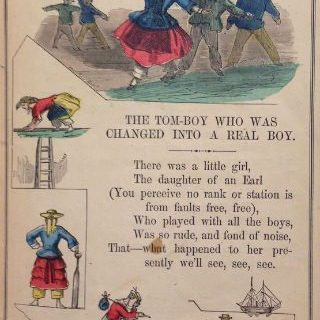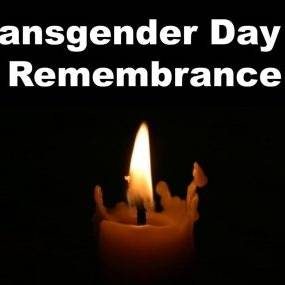 As lesbians, how do we understand and talk about transgender children?
As lesbians, how do we understand and talk about transgender children?
As the lesbian community becomes more aware of and savvy about transgender children, it’s important to have the language to understand and support this dynamic new generation. Many lesbians are still unfamiliar with the best terminology to use when discussing transgender and gender independent kids. Even if you don’t think you’ve met any such children, chances are that you’re about to, or that you may have, and you’re just not aware. But if you have kids of your own, they probably already know a child who’s socially or medically transitioned. After all, young people today are way ahead of our own learning curve on so many issues! So with “back to school” spirit in the air, consider this your own educational primer on how to better comprehend an issue you may need a little extra tutoring on.
What is transgender?
Transgender is an umbrella term describing a wide category of people. Most people who describe themselves as trans feel that their gender identity does not align with the biological sex they were assigned at birth. Many transgender children understand this difference when they are very young-even as young as eighteen months old. In research done for the book I co-wrote called The Transgender Child: A Handbook for Families and Professionals, one mother reported to me that “Mama, I be a boy” was the first full sentence her then almost 2 year old child ever said. That child went on to transition socially at about five years old from female to male. But there is no one way to be transgender, just as there is no one “right” way to identify as lesbian.
What is gender identity?
This is a good starting point in anyone’s understanding. A great way to explain this is to consider that gender is the way we prefer to express living in the world. Gender is whom we perceive ourselves to be, internally, culturally and socially, as a male or female, or somewhere in between. Another concept to consider is that gender may not be a binary, but a rainbow spectrum where there is room for everyone. With some folks, gender matches up with biology. A term used more frequently now when this happens is cisgender, although I have also seen this word used in a derogatory fashion, so its staying power is still up in the air.
Is gender the same thing as sexual orientation?
No, although this one confuses a lot of people. Sexual orientation can be fluid, or fixed, but it means how we identify, if we do want to identify, how and who we are attracted to physically and emotionally. A person’s sexual orientation is separate from their gender identity. With trans children, their felt sense of gender identity often emerges far before their sexual orientation.
How should I react if I find out a child I know is trans?
You should be accepting, of course! It’s likely that the family involved has been coping with this issue for a really long time. You will not need to weigh in with your opinion or offer advice. A decision to support a child’s transition, whether this be socially, or medically, is a huge one. You can set a good example for others in your community by being non-judgmental, open-minded about what you don’t know, and kind. And just treat this child like you would any other, by being curious about them and what their interests are, without making a big deal about their gender expression. Likely, they won’t want to be singled out for special attention or discuss their gender expression or transition with you. Just let them be a kid! And always call them by their chosen name, and use the correct pronoun-the one the child uses for themself.
If I have children of my own, how do I discuss this with them?
With basic, clear terms, in a non-judgmental way, in developmentally appropriate language, in the same way you would discuss any other issue. But do your own research first, and don’t “out” any trans children or adults without their consent, to your children or other community members. Safety and privacy are still a concern for many transgender children because of societal prejudice, not because they aren’t proud of who they are.
How do trans children transition?
Transition means something different to every trans person, including trans identified children. Sometimes children transition socially very young-dressing as their preferred self, changing pronouns, and changing names. In many states it is now the law to respect these changes, including having safe access to restrooms and locker rooms. These days, a common medical protocol is for trans youth as young as 11 to take “hormone blockers.” Hormone blockers are FDA approved and have been used world-wide for many years. They were originally developed to slow down the puberty of kids who developed too young and too quickly. These blockers are now used to suppress the puberty of trans kids, so that they don’t undergo unwanted pubertal changes. Blockers are a way some families conceptualize “buying time,” but others now consider them merely a short stepping stone on the road to beginning cross-hormones. In either case, blockers are safe and reversible if stopped. Cross-hormones (ie-testosterone and estrogen) are being offered to teens earlier than in prior years, when the standard protocol was to wait until about age 18. This means that the current generation of trans kids, at least those fortunate enough to access such resources, will not need to undergo what we have previously understood to be “gender reassignment.” Amazingly, they will have the opportunity to mature in the bodies they know as authentic, without need for invasive, expensive, and scarring surgeries. But remember, it is not ok to ask a trans person of any age about surgeries or treatments they are currently using or hoping to have.
I’m not sure I understand this, or agree with this, as a feminist.
That’s ok. We don’t all agree about a lot of things in life. However, you do owe respect to people for their beliefs and decisions about themselves and their family, even if these decisions are different than ones you would make. What is important here is that trans children, like gay and lesbian children, can grow up safely. When they are belittled, shamed, shunned, or cast out from their families, LGBT kids are likely to become homeless, at high risk for substance abuse and for being victimized, develop more mental illness, and have a very high risk for suicide. As we wish this for our own children, and those in our queer community, parents of trans children are increasingly realizing they must love, accept and protect their children for who they are. The world has changed, society’s views of lesbian and gay people have changed, and our beliefs about ourselves as women have changed too. The majority of trans people just want to live their lives in a safe, healthy, and happy manner, surrounded by people who love and accept them for who they are. Certainly we can all agree that this is no different for any of us!




